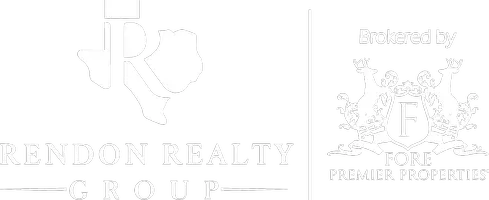The Importance Of Home Equity in Building Wealth
See how equity grows your net worth—and how to speed it up.
Rent checks disappear. Mortgage payments build something you keep. In a low-inventory market, that difference matters more than ever.
A clear, local guide to how equity works, why owning often builds net worth faster than renting, and smart ways to use your equity in the Texas Hill Country.
Homeownership vs. Renting: Building Wealth Through Equity
- Equity = market value minus what you owe; it grows with principal paydown and appreciation.
- Owners often build wealth faster than renters because payments accrue to an asset you own.
- Rent includes taxes, insurance, and upkeep indirectly—owners see those costs transparently.
- Use equity carefully: selling or cash-out refinancing can unlock funds, but terms and risks matter.
Table of contents
What Is Home Equity (and Why It Compounds)?
Quick answer: Home equity is your home’s market value minus your mortgage balance. It typically grows two ways—every payment that reduces principal and any market appreciation over time.
Example: if your home is worth $350,000 and you owe $200,000, your equity is $150,000. As you make payments, more goes to principal each year; if values rise, your equity can climb faster.
During some years, Texas homeowners have seen meaningful equity gains; one cited estimate put average 2020 gains near $8,000 for the state [NEED DATA]. Equity is not just a number—owners often leverage it for moves, renovations, or financial resilience.
Subtopic A
Amortization accelerates. In most fixed loans, the share of each payment going to principal increases over time, speeding equity growth—especially if you make occasional extra principal payments.
Owning vs. Renting: Costs, Tradeoffs, and Myths
Bottom line: Renting can feel simpler up front, but you still cover property taxes, maintenance, and insurance through rent. Ownership makes those costs explicit—while turning payments into equity.
- Transparency: Owners see taxes, insurance, HOA, and upkeep line-itemed; renters pay them indirectly via rent.
- Wealth effect: Mortgage payments reduce what you owe on an appreciating asset; rent does not build ownership.
- Liquidity tradeoff: Equity isn’t cash; accessing it requires selling or financing.
In supply-constrained Hill Country markets like Fredericksburg and Kerrville, appreciation potential plus diligent maintenance can make owning compelling over multi-year horizons—provided the payment fits your budget.
Smart Ways to Use Equity + Hardship Options
In practice: Owners typically tap equity by selling or refinancing. Use proceeds strategically—fund a right-size move, consolidate higher-rate debt, or invest in value-add renovations.
Sell your home. Upon sale, you receive your equity (less closing costs). Using our $350k/$200k example, that’s roughly $150k before fees and taxes.
Refinance or HELOC. A cash-out refi or home equity line lets you borrow against equity. Compare rates, fees, and payoff timelines; avoid using equity for short-lived purchases.
If you’re stretched: Consider downsizing or renting for a season, request a loan review with your servicer, and explore HUD-approved counseling for options.
Sources
FAQs
Is owning always better than renting?
No. If you need maximum flexibility (short stay, uncertain job, or saving for a down payment), renting can be smarter. Over multi-year periods, ownership often wins on net worth because payments build equity.
How much equity do I need to refinance?
Many lenders look for at least 20% equity for the best pricing, but programs vary. Compare a cash-out refi with a HELOC to see which aligns with your budget and risk tolerance.
What if I’m struggling with payments?
Call your servicer promptly, review workout options, and contact a HUD-approved counselor. You can also evaluate downsizing or a temporary rental to unlock equity and lower costs.
Will Hill Country home prices keep rising?
Many forecasters expect long-run growth, but year-to-year moves can vary. Track FHFA or local MLS trends and decide based on your time horizon and payment comfort. [NEED DATA]
Have a Hill Country question?
I’m based in Fredericksburg and work across Gillespie, Kerr, Blanco, Kimble, Mason, Llano & Bandera. Let’s talk strategy.
Talk with Ryan